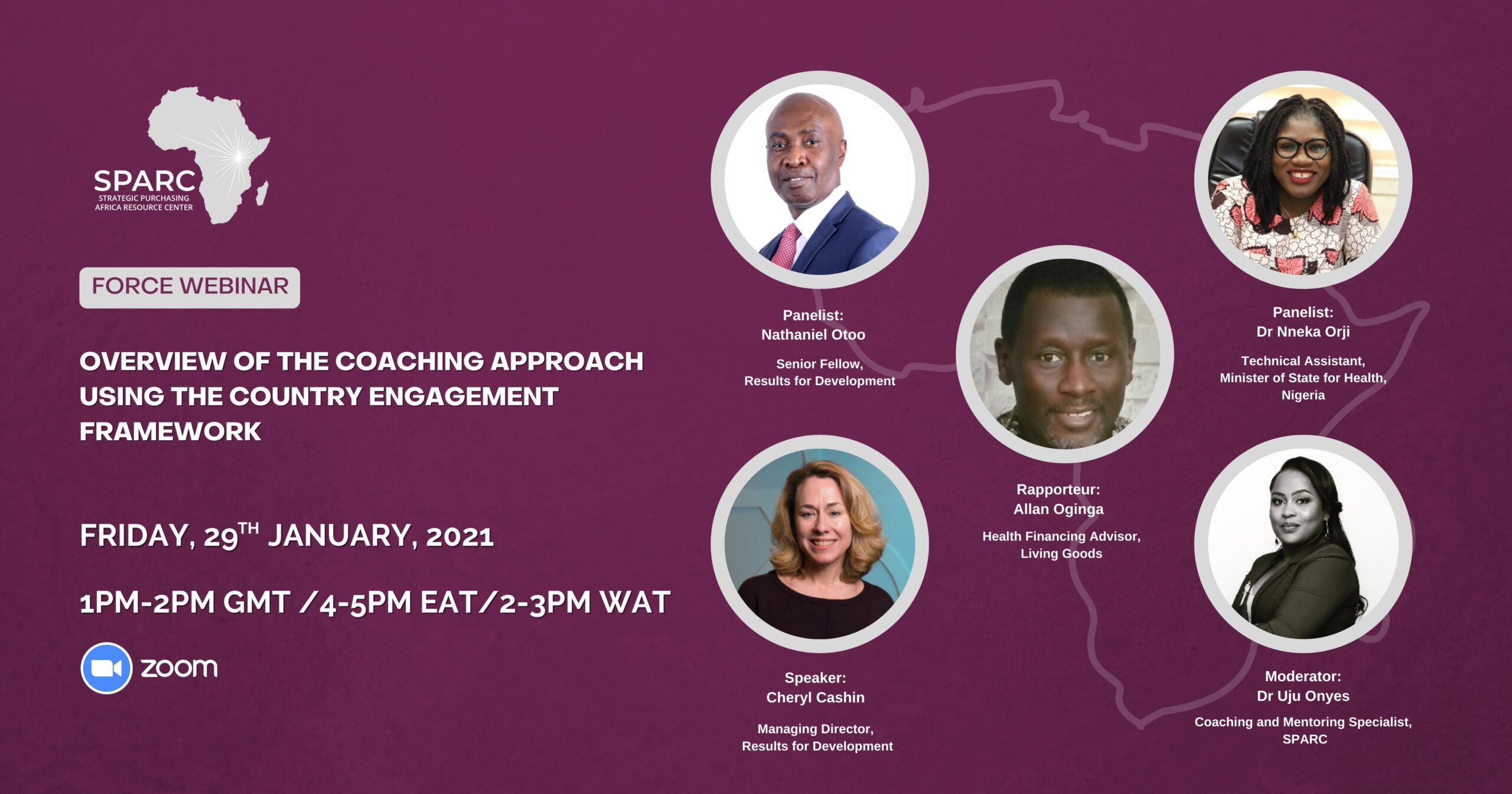The Force Community webinars’ focus for the first quarter of the year 2021 is on capacity building of the FORCE community on the Coaching Approach (CA) and identifying the tools needed to facilitate their work in-country. Drawing from the experience of a seasoned Coach and Mentor Nathaniel Otoo, and policymaker Dr Nneka Orji, the first webinar of 2021 focussed on the CA, and how the understanding the problem pillar was used in-country engagement, the challenges encountered, and coaching skills used to mitigate them.
The objectives of the 1-hour session were to:
- Highlight the technical and soft skills needed to support a country to understand the health system problem.
- Highlight the nuances/differences in Technical Assistance with the application of the CA.
- Build the capacity of FORCE members on the CA.
Summary of Key Takeaways:
- The CA is an approach to technical assistance that draws mainly on local and regional experts to provide coaching, mentoring and facilitation support to country partners to resolve their health systems challenges.
- The approach is applied through a cadre of experts who have technical skills and knowledge and complementary non-technical competencies and soft skills to coach, mentor and facilitate country-led processes.
- A coach is an expert who consistently engages with the country team over a defined period for a specific technical task. The coach may provide technical guidance through short, targeted engagements or the coach may work side-by-side with a country partner for a longer-term process.
- A mentor is a senior expert with relevant experience that can be brought in at key moments in the country process to provide high-level, strategic guidance, especially at critical decision points.
- Countries often DO understand their problems; the coach’s role is to come in as a “sounding board” and a “validator” of the problems.
- A Coach must have strong technical skills, be a good facilitator and listener, and bring the right people together. They must be patient and be able to manage personality clashes, understand the political landscape and sensitivities, and know which topics to avoid.
- Coaches must be sensitive to a Country’s timetable and work within them.
- The coach does not do the work directly, but instead stands side-by-side with country partners and provides support, advice and contextualized evidence to the country team. They should also apply the learning by doing approach and ensure that they build the capacity of the country team.
- The aim of the approach is to leave behind a stronger local team/recipient that can continue the work after technical assistance ends.
- The use of a modelling approach is NOT recommended; this suggests a cut-and-paste work approach, it is crucial to recognize each country’s uniqueness and support each country to develop its model, which others can learn from.
- To increase ownership and confidence in the coach, the recruitment process should be transparent, and all relevant stakeholders should be carried along.
- The country team should be prepared to use the expertise of the coach to tailor make solutions that best fit their context using the learning by doing approach.
Key Messages from the January FORCE Community Webinar – ‘Overview of the Coaching Approach Using the Country Engagement Framework.’

